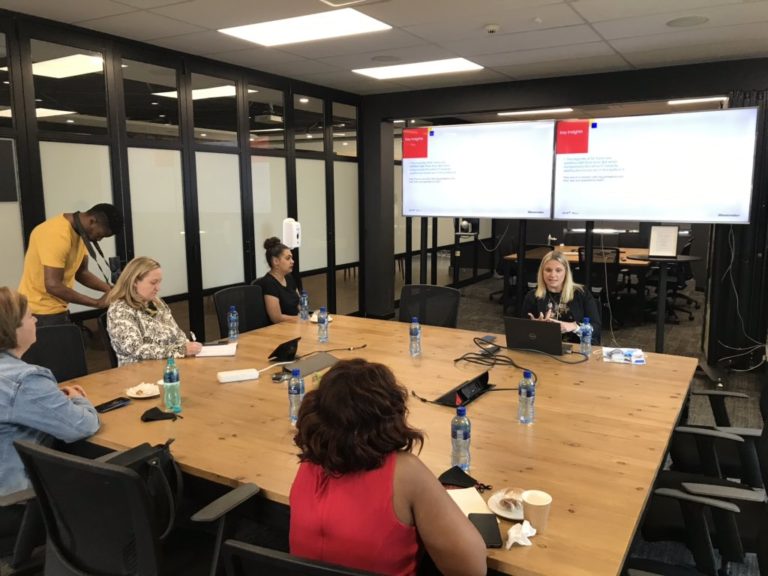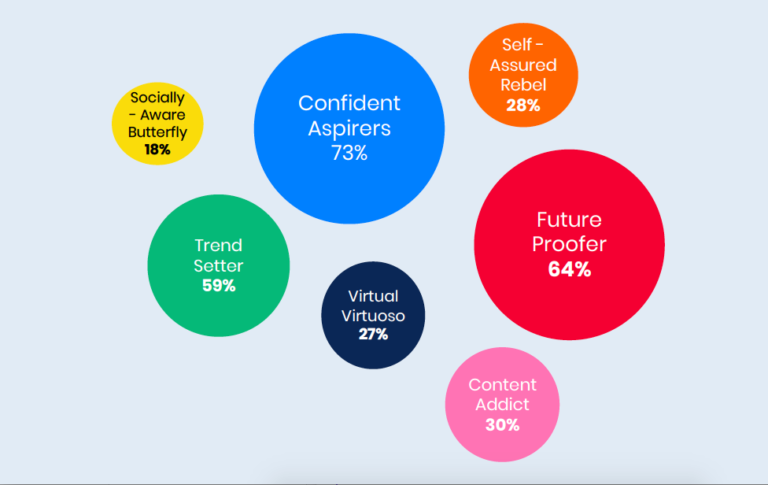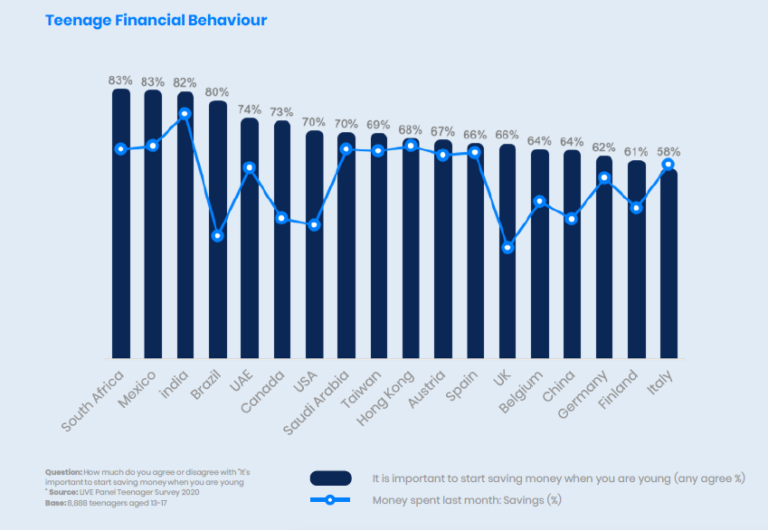Modern Marketing attended the launch of Wavemaker’s Teenage Research Report on 14 October, where Delia Van Staden, Head of Analytics and Insight at Wavemaker, unpacked some valuable insights about the gatekeepers of modern and future trends.

The Live Panel Teenager Report is a collaboration project between MediaCom, Mindshare and Wavemaker. Benefitting from the agencies’ experience in audience planning and understanding of consumer sentiment, the authors of this report have designed this framework to inform media planning for this key target group.
As part of GroupM’s Live Panel, this report provides important insights into the behaviours of tomorrow’s trendsetters. The report shows that today’s teenagers are positive about life and have strong, personal and highly individual aspirations. They prioritise having a job they love over any need to conform to expectations. However, growing up with the consequences of a global recession means these ambitions are underpinned by a strong need for financial security and realism.
The combination of their digital prowess and focus on money/security means that teens are highly informed, self-reliant and extremely savvy decision-makers. They have a thirst for knowledge and actively spend time researching information online to stay up-to-date and maximise every penny they spend.
Brands have nowhere to hide when winning the hearts and minds of teens. They must be transparent, trusted, deliver on individual lifestyle preferences and, above all, represent, and actively demonstrate, the values that are important to teenagers. Nike, Adidas, Apple and Samsung have all achieved this and are globally loved.
Today’s teenagers are tomorrow’s trendsetters. They have grown up surrounded by digital technology, the consequences of a global recession and new-world terrorism (and now Coronavirus). Although most teenagers are still (fairly) dependent upon parents or guardians, this environment has significantly affected their opinions and attitudes in life, which in turn will guide their media consumption, purchasing behaviour and attitudes towards brands and institutions.
They have identified seven personality archetypes within their study. These archetypes are not mutually exclusive, meaning the average teenager can have multiple personas.

1. Confident aspirers
They are highly aspirational and already thinking about their career; enjoy pushing themselves and taking on new challenges and do not need approval from friends or family for decision-making. Instead, life decisions are based on what is right for them. They highly value education but are concerned about cost.
2. Self-assured rebels
They are satisfied with their life right now and confident in who they are. Culture and tradition are important to them, but they also like to push boundaries and rules. Overall, it is important that others think well of them.
3. Socially-aware butterflies
Maintaining an online social image that receives views and likes is important to them, but they are also cautious about what they post in case it offends others or negatively affects them in the future. Online bullying is also a concern.
4. Virtual virtuosos
They are very heavy and and highly savvy internet users. They are comfortable protecting their online privacy, blocking adverts and not taking everything at face value, although they can be shocked by what people share. They are happier using online spaces to share their emotions.
5. Future proofer
They are focused on financial security, both in terms of saving money for the future and ensuring it is always spent wisely through heavily researching purchases. They also value ethical brands and companies.
6. Trendsetters
Like to be the first to know about new things (TV programmes, technology, gadgets, etc.) and to be the one that people come to for updates and advice. Adverts and celebrity endorsements are accepted, but only if they are relevant to them directly.
7. Content Addicts
Love all forms of TV/video content and being in front of a screen. They use content as a form of social currency with friendship groups.
Pragmatic, prudent, individual and aspirational
Today’s teenagers are positive about life. 63% said that they are satisfied with life right now – albeit lower than the global average of 69%. They value individual expression and being themselves, not needing to conform to the expectations of others. They have strong personal aspirations in life and are already thinking about the career they would like –having a job they love is a priority (87% agree). Education is key to unlocking employment opportunities, with 70% saying they want to go to university, but the cost is worrying. Their desire for tertiary education is much more significant in South Africa than the 48% global average and the highest across all markets.
Their sense of self and celebration of independence is further evidenced by the fact that only 27% of 16-17-year-olds in South Africa felt it was important to be in a relationship at their age, while 51% actively disagreed with this statement. Teenagers do not need other people or things to define who they are.

Implications for marketers
– Brands should talk to this audience with highly individual messaging.
– Let teenagers shape their own personal experiences that deliver against their own values.
– Messages should be aligned to teenager aspirations, but always ‘keeping things real’.
– Demonstrate that you are on the teenager’s side and communicate values that are increasingly personal.
– Always remember that if you get teen marketing right, you are both building brand image and securing a future pool of consumers. The future focus will then be on retention and loyalty as teenagers transition into adulthood.
– Teenagers want to maximise every penny, so messaging should focus on the ‘return on investment’.
– Brands should balance messaging between brand building and product efficacy, value and benefits.
– Use tactics such as rewarding mobile check-ins and improving the value of loyalty programmes to keep consumers focused on buying your products.
– Brands can develop and strengthen their relationships with teenagers by communicating with them on their own terms and by adhering to their values.
– Allocate budgets to social media and branded mobile applications to allow consumers to create and share brand content.
– Brands must actively speak out about the causes they support for teens to understand what they truly stand for.
– Teenagers spend vast amounts of time on social platforms and respond better to those they see as their peers.
– Influencer marketing targets audiences in the environments they spend time in and approaches them on their level. Therefore, a strong influencer marketing campaign is essential for this audience.
– Marketers need to understand and use the nuances of the role(s) of different celebrities/influencers for the teenager audience.
– Brands should tap into social with authentic content to influence the influencers.
– Target the appointment-to-view programmes and build brand affinity, with relevant, customised sponsorship or product-placement opportunities.
– Tap into second-screening behaviour and create real-time content for them to share with friends and family.
The study was conducted prior to the outbreak of Coronavirus, so the authors have included a view on the impact of the virus on this audience. The everyday life of teenagers has changed exponentially in a matter of weeks, with social distancing, curfews, quarantines, lockdowns and more: a huge impact today and into the future. They know that teenagers are highly aspirational, like to push themselves and take on new challenges. The Coronavirus crisis will be very painful for many. With school closures and cancelled events, many are losing some of the biggest and formative moments of their young lives, such as sporting events, school graduation, matric dances and live music. These are often ‘right-of-passage’ moments that can never be regained. Their loss is devastating.
They also know that teenagers highly value the role of education and therefore many will be concerned about missing out on academic activities and exams that will help them secure further education and employment opportunities. Understandably, many will be wondering how this will affect their futures. This, in turn, may lead to higher levels of stress and anxiety among this age group.
This is further evidenced by a recent study in the US by DoSomething.org, which stated that the top emotions felt by teenagers towards the Coronavirus are frustration (54%) and nervousness (49%). For more information and to access the full report, contact Wavemaker.








